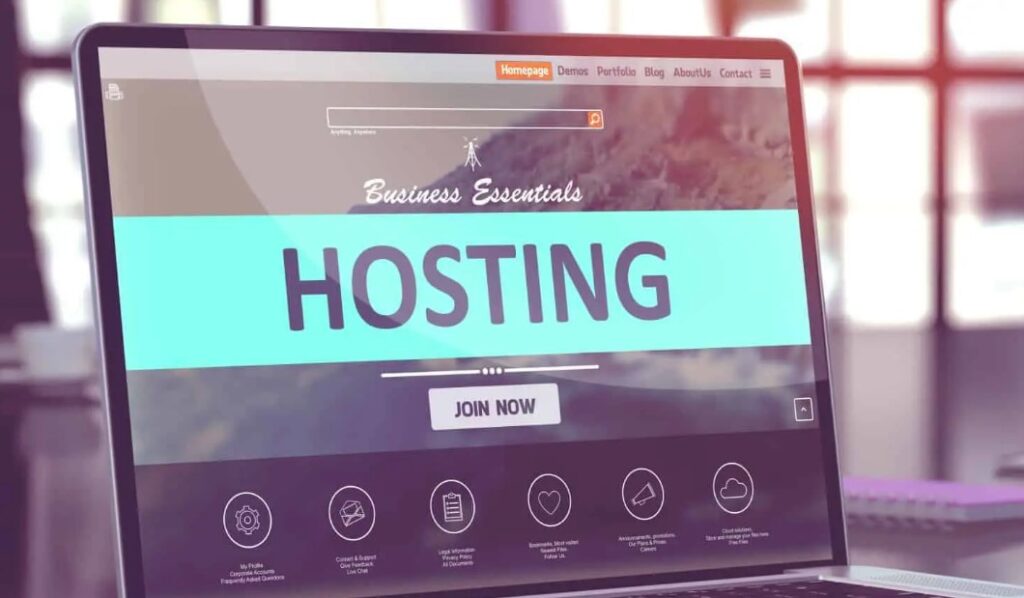In today’s digital landscape, having a website is crucial for businesses, bloggers, and entrepreneurs. To establish an online presence, you need a reliable website building and hosting solution. This guide provides all the information you need to choose the best website building and hosting services, including benefits, detailed product information, and where to buy.
What is Website Building and Hosting?

What is Website Building?
Website building involves creating a website, which includes planning, designing, and developing web pages. This process can be facilitated using various tools and platforms that simplify the creation of professional websites without requiring advanced technical skills.
What is Web Hosting?
Web hosting is the service that allows your website to be accessible on the internet. When you purchase hosting, you are renting space on a server where your website’s files and data are stored. This server ensures that your website is available to users around the clock.
Key Benefits of Website Building
1. Establishing Online Presence
Visibility: A website makes your business or personal brand visible to a global audience, allowing potential customers or followers to find you easily.
Credibility: A professional website enhances your credibility, showing that you are serious about your business or personal brand.
2. Customization and Control
Tailored Design: Website builders offer a range of customizable templates, allowing you to create a unique and visually appealing website that aligns with your brand identity.
Full Control: You have full control over the content, layout, and functionality of your website, enabling you to tailor it to your specific needs and preferences.
3. Cost-Effective Marketing
Digital Marketing Integration: Websites can integrate various digital marketing tools, such as SEO, social media, and email marketing, to reach a broader audience and drive traffic.
Content Marketing: Regularly updating your website with valuable content helps attract and engage visitors, establishing you as an authority in your field.
4. Accessibility and Convenience
24/7 Availability: Your website is accessible 24/7, allowing customers to learn about your products or services, make purchases, or contact you at any time.
User-Friendly Experience: Modern website builders provide intuitive interfaces and drag-and-drop features, making it easy for anyone to build and maintain a website.
Key Benefits of Web Hosting
1. Reliable Performance
Uptime Guarantee: Reputable web hosting providers offer high uptime guarantees, ensuring that your website is available to visitors at all times.
Fast Loading Speeds: Quality hosting services provide optimized servers that ensure fast loading speeds, enhancing the user experience and improving your site’s SEO.
2. Security and Protection
Data Security: Hosting providers implement robust security measures to protect your website from cyber threats, such as and attempts.
Backups and Recovery: Regular backups and recovery options ensure that your website’s data is safe and can be restored in case of data loss or corruption.
3. Scalability and Flexibility
Resource Allocation: Hosting plans come with various resource allocations (e.g., bandwidth, storage) that can be scaled up as your website grows, ensuring it can handle increased traffic and data.
Customizable Plans: You can choose from a variety of hosting plans (e.g., shared, VPS, dedicated) based on your website’s requirements and budget.
4. Technical Support
24/7 Customer Support: Hosting providers offer round-the-clock customer support to assist you with any technical issues or queries, ensuring smooth website operation.
Expert Assistance: Access to expert support helps you resolve problems quickly and efficiently, minimizing downtime and maintaining your website’s performance.
Integrating Website Building and Hosting
Seamless Integration
One-Stop Solution: Many providers offer combined website building and hosting packages, providing a seamless integration that simplifies the process of getting your website online.
User-Friendly Platforms: These packages often include user-friendly platforms that allow you to design, build, and host your website from a single interface.
Enhanced Performance
Optimized Infrastructure: Integrated solutions are optimized for performance, ensuring that your website runs smoothly and efficiently.
Regular Updates: Hosting providers offer regular updates to ensure that your website’s software and infrastructure are up-to-date, enhancing security and functionality.
Choosing the Right Provider
Evaluate Your Needs
Website Purpose: Determine the primary purpose of your website (e.g., e-commerce, blogging, portfolio) and choose a provider that offers the necessary tools and features.
Traffic Expectations: Consider your expected traffic volume and select a hosting plan that can accommodate it without compromising performance.
Research Providers
Reviews and Ratings: Research reviews and ratings of different website building and hosting providers to ensure you choose a reputable and reliable company.
Customer Support: Look for providers that offer excellent customer support, as this will be crucial in managing and maintaining your website.
Detailed Product Information and Comparison

1. Wix
Website: Wix
Wix is a popular website builder known for its drag-and-drop interface and extensive template library. It offers a range of hosting plans suitable for various needs.
- Key Features:
- Drag-and-drop website builder
- Hundreds of customizable templates
- Free domain for the first year
- 24/7 customer support
- Pros:
- User-friendly interface
- Extensive template library
- Flexible design options
- Cons:
- Limited customization for advanced users
- Higher renewal rates
- Price: Starting at $14/month
2. Squarespace
Website: Squarespace
Squarespace is a well-known website builder and hosting provider offering beautifully designed templates and robust features. It’s ideal for creatives and businesses looking for a polished online presence.
- Key Features:
- Award-winning templates
- Integrated e-commerce functionality
- Free domain for the first year
- 24/7 customer support
- Pros:
- Stunning design options
- Excellent customer support
- Comprehensive e-commerce features
- Cons:
- Higher price point
- Limited third-party integrations
- Price: Starting at $16/month
3. WordPress.com
Website: WordPress.com
WordPress.com offers powerful website building and hosting solutions, ideal for bloggers, businesses, and anyone looking for extensive customization options.
- Key Features:
- Thousands of themes and plugins
- Free domain for the first year
- Built-in SEO tools
- 24/7 customer support
- Pros:
- Highly customizable
- Extensive plugin library
- Strong SEO features
- Cons:
- Steeper learning curve
- Additional costs for premium features
- Price: Starting at $4/month
4. Weebly
Website: Weebly
Weebly is an easy-to-use website builder that offers a variety of hosting plans. It’s ideal for small businesses and individuals looking for a straightforward way to create a website.
- Key Features:
- Drag-and-drop builder
- Integrated e-commerce functionality
- Free domain for the first year
- 24/7 customer support
- Pros:
- User-friendly
- Affordable pricing
- Good e-commerce options
- Cons:
- Limited customization
- Basic design options
- Price: Starting at $6/month
5. Shopify
Website: Shopify
Shopify is a leading e-commerce platform that offers robust website building and hosting services. It’s perfect for businesses looking to create an online store with comprehensive features.
- Key Features:
- Powerful e-commerce tools
- Hundreds of store templates
- Integrated payment processing
- 24/7 customer support
- Pros:
- Comprehensive e-commerce features
- Excellent customer support
- Scalable solutions
- Cons:
- Higher price point
- Transaction fees on lower-tier plans
- Price: Starting at $29/month
Comparison Table
| Product | Use Case | Pros | Cons | Price | Key Features |
|---|---|---|---|---|---|
| Wix | General website building | User-friendly, extensive templates | Limited customization | $14/month | Drag-and-drop builder, templates, 24/7 support |
| Squarespace | Polished online presence | Stunning design, great support | Higher price | $16/month | Award-winning templates, e-commerce, 24/7 support |
| WordPress.com | Highly customizable | Extensive plugins, strong SEO | Steeper learning curve | $4/month | Themes and plugins, SEO tools, 24/7 support |
| Weebly | Small business websites | User-friendly, affordable | Basic design options | $6/month | Drag-and-drop builder, e-commerce, 24/7 support |
| Shopify | E-commerce stores | Comprehensive e-commerce features | Higher price | $29/month | E-commerce tools, templates, 24/7 support |
Detailed Use Cases
- Wix for Personal Blogs and Portfolios Wix is ideal for individuals looking to create personal blogs or portfolios. Its drag-and-drop builder and extensive template library make it easy to design a professional-looking website.
- Squarespace for Creative Professionals Squarespace is perfect for photographers, artists, and designers who want a visually stunning website. Its award-winning templates provide a polished and professional appearance.
- WordPress.com for Bloggers and Businesses WordPress.com offers powerful customization options, making it ideal for bloggers and businesses that need a flexible and scalable platform.
- Weebly for Small Businesses and Startups Weebly’s user-friendly interface and affordable pricing make it a great choice for small businesses and startups looking to establish an online presence quickly.
- Shopify for E-commerce Entrepreneurs Shopify is the go-to platform for entrepreneurs looking to create an online store. Its comprehensive e-commerce features and excellent customer support ensure a smooth selling experience.
How to Buy Website Building and Hosting
Step 1: Determine Your Needs
Before purchasing, evaluate what you need for your website:
- Purpose: What is the primary purpose of your website? (e.g., e-commerce, blogging, portfolio)
- Traffic: How much traffic do you expect?
- Features: What features do you need? (e.g., e-commerce capabilities, blogging tools, contact forms)
Step 2: Choose a Website Builder
Website builders simplify the process of creating a website. Popular website builders include:
- Wix: Known for its drag-and-drop interface and extensive template library.
- Squarespace: Offers beautiful designs and robust e-commerce features.
- WordPress.com: Highly customizable with numerous plugins and themes.
- Weebly: User-friendly with good e-commerce capabilities.
Step 3: Choose a Web Hosting Provider
Selecting the right web hosting provider is crucial for your website’s performance and reliability. Popular web hosting providers include:
- Bluehost: Recommended for WordPress sites with great support and performance.
- SiteGround: Known for excellent customer support and high performance.
- HostGator: Offers a range of affordable hosting plans.
- InMotion Hosting: Provides robust features and excellent customer support.
Step 4: Register Your Domain
Your domain is your website’s address on the internet (e.g., www.yourwebsite.com). Many website builders and hosting providers offer domain registration services. Ensure your domain name is:
- Simple and Memorable: Easy to spell and remember.
- Relevant: Reflects your brand or business.
- Available: Check availability using domain search tools.
Step 5: Purchase a Website Building Plan
Once you’ve chosen a website builder, select a plan that fits your needs. Plans typically vary based on:
- Storage and Bandwidth: Ensure you have enough resources to handle your expected traffic.
- Features: Look for necessary features like e-commerce capabilities, SEO tools, and templates.
- Pricing: Compare plans to find one that fits your budget.
Step 6: Purchase a Hosting Plan
When purchasing a hosting plan, consider the following:
- Shared Hosting: Ideal for small websites and beginners.
- VPS Hosting: Offers more resources and better performance.
- Dedicated Hosting: Best for large websites with high traffic.
- Cloud Hosting: Provides scalability and flexibility.
Step 7: Connect Your Domain to Your Website and Hosting
After purchasing your domain, website building, and hosting services, connect them to get your site online:
- Update DNS Settings: Log in to your domain registrar’s account and update the DNS settings to point to your hosting provider’s servers.
- Set Up Your Website: Use the website builder’s tools to design and develop your site.
Tips for Buying Website Building and Hosting
Evaluate Bundled Packages
Many providers offer bundled packages that include domain registration, website building, and hosting services. These can be more cost-effective and convenient.
Read Reviews and Testimonials
Research reviews and testimonials of different website builders and hosting providers to ensure you choose a reputable company.
Check for Hidden Fees
Be aware of any additional fees for services such as domain privacy protection, email accounts, or SSL certificates.
Utilize Free Trials and Money-Back Guarantees
Many providers offer free trials or money-back guarantees. Take advantage of these offers to test the services before committing.
Consider Scalability
Choose a provider that allows you to upgrade your plan as your website grows, ensuring you can handle increased traffic and data.
FAQs
- What is the difference between website building and hosting? Website building involves creating and designing your website, while hosting is the service that stores your website’s files on a server and makes it accessible on the internet.
- Can I buy website building without hosting? Most website builders include hosting as part of their package, so you typically get both services together.
- Which website builder is best for beginners? Wix and Weebly are excellent choices for beginners due to their user-friendly interfaces and affordable pricing.
- Can I transfer my website to another hosting provider? Yes, most providers offer website migration services. Check with your current provider for specific instructions.
- How much does website building and hosting cost? Prices vary depending on the provider and plan you choose. Basic plans typically start around $4 to $29 per month.
Choosing the right website building and hosting provider is essential for establishing a successful online presence. Whether you’re a creative professional, small business owner, or e-commerce entrepreneur, there’s a solution tailored to your needs. Start building your online presence today!
